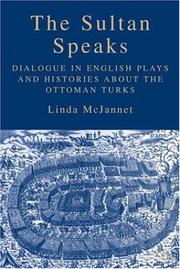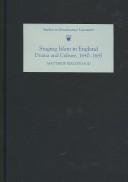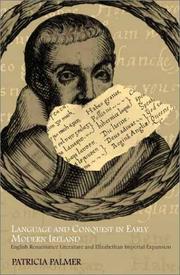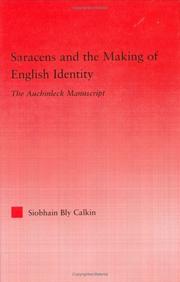| Listing 1 - 10 of 17 | << page >> |
Sort by
|
Book
Year: 1952 Publisher: Göttingen : Musterschmidt,
Abstract | Keywords | Export | Availability | Bookmark
 Loading...
Loading...Choose an application
- Reference Manager
- EndNote
- RefWorks (Direct export to RefWorks)
Shakespeare, William, --- Knowledge --- Russia. --- Russia --- Great Britain --- Foreign public opinion, English. --- Relations --- Description and travel.
Book
Year: 2020 Publisher: Baltimore, Maryland : Project Muse,
Abstract | Keywords | Export | Availability | Bookmark
 Loading...
Loading...Choose an application
- Reference Manager
- EndNote
- RefWorks (Direct export to RefWorks)
Spain has been a fruitful locus for the European imagination for centuries, and it has been most often perceived in black-and-white oppositions -- either as a tyrannical and fanatical force in the early modern period or as an imaginary geography of a 'Romantic' Spain in later centuries. However, the image of Spain, its culture and its inhabitants did not evolve inexorably from negative to positive. From the early modern period onwards, it responded to an ambiguous matrix of conflicting Hispanophobic and Hispanophilic representations. Just as in the nineteenth century latent negative stereotypes continued to resurface, even in the Romantic heyday, in the early modern period appreciation for Spain was equally undeniable. When Spain was a political and military superpower, it also enjoyed cultural hegemony with a literary Golden Age producing internationally hailed masterpieces. Literary Hispanophobia and Hispanophilia in Britain and the Low Countries (1550-1850) explores the protracted interest in Spain and its culture, and it exposes the co-existent ambiguity between scorn and fascination that characterizes Western historical perceptions, in particular in Britain and the Low Countries, two geographical spaces with a shared sense of historical connectedness and an overlapping, sometimes complicated, history with Spain.
Book
Year: 2020 Publisher: Baltimore, Maryland : Project Muse,
Abstract | Keywords | Export | Availability | Bookmark
 Loading...
Loading...Choose an application
- Reference Manager
- EndNote
- RefWorks (Direct export to RefWorks)
Spain has been a fruitful locus for the European imagination for centuries, and it has been most often perceived in black-and-white oppositions -- either as a tyrannical and fanatical force in the early modern period or as an imaginary geography of a 'Romantic' Spain in later centuries. However, the image of Spain, its culture and its inhabitants did not evolve inexorably from negative to positive. From the early modern period onwards, it responded to an ambiguous matrix of conflicting Hispanophobic and Hispanophilic representations. Just as in the nineteenth century latent negative stereotypes continued to resurface, even in the Romantic heyday, in the early modern period appreciation for Spain was equally undeniable. When Spain was a political and military superpower, it also enjoyed cultural hegemony with a literary Golden Age producing internationally hailed masterpieces. Literary Hispanophobia and Hispanophilia in Britain and the Low Countries (1550-1850) explores the protracted interest in Spain and its culture, and it exposes the co-existent ambiguity between scorn and fascination that characterizes Western historical perceptions, in particular in Britain and the Low Countries, two geographical spaces with a shared sense of historical connectedness and an overlapping, sometimes complicated, history with Spain.
Book
Year: 2020 Publisher: Baltimore, Maryland : Project Muse,
Abstract | Keywords | Export | Availability | Bookmark
 Loading...
Loading...Choose an application
- Reference Manager
- EndNote
- RefWorks (Direct export to RefWorks)
Spain has been a fruitful locus for the European imagination for centuries, and it has been most often perceived in black-and-white oppositions -- either as a tyrannical and fanatical force in the early modern period or as an imaginary geography of a 'Romantic' Spain in later centuries. However, the image of Spain, its culture and its inhabitants did not evolve inexorably from negative to positive. From the early modern period onwards, it responded to an ambiguous matrix of conflicting Hispanophobic and Hispanophilic representations. Just as in the nineteenth century latent negative stereotypes continued to resurface, even in the Romantic heyday, in the early modern period appreciation for Spain was equally undeniable. When Spain was a political and military superpower, it also enjoyed cultural hegemony with a literary Golden Age producing internationally hailed masterpieces. Literary Hispanophobia and Hispanophilia in Britain and the Low Countries (1550-1850) explores the protracted interest in Spain and its culture, and it exposes the co-existent ambiguity between scorn and fascination that characterizes Western historical perceptions, in particular in Britain and the Low Countries, two geographical spaces with a shared sense of historical connectedness and an overlapping, sometimes complicated, history with Spain.
Book
ISBN: 0880331925 Year: 1990 Publisher: Boulder, Colo. Highland Lakes, N.J. Social Science Monographs Atlantic Research and Publications
Abstract | Keywords | Export | Availability | Bookmark
 Loading...
Loading...Choose an application
- Reference Manager
- EndNote
- RefWorks (Direct export to RefWorks)

ISBN: 9781403974266 1403974268 1349534846 9786611361075 1281361070 0230601499 Year: 2006 Publisher: New York, N.Y. Palgrave Macmillan
Abstract | Keywords | Export | Availability | Bookmark
 Loading...
Loading...Choose an application
- Reference Manager
- EndNote
- RefWorks (Direct export to RefWorks)
The first study of English historical plays about the Turks, using works in Greek, Arabic, and Turkish. Drawing on Bakhtin's concept of the dialogic, McJannet shows that instead of adverse authorial commentary playwrights such as Marlowe and Fulke Greville use dialogue and commentary to enhance the sultan's stature and mitigate his negative acts.
Comparative literature --- Thematology --- English literature --- Drama --- English drama --- Islam and literature --- Turks in literature. --- Turkic influences. --- History and criticism. --- History --- Turkey --- Islamic countries --- Historiography. --- Foreign public opinion, English. --- In literature. --- European literature. --- History, Modern. --- Literature, Modern. --- Theater. --- European Literature. --- European History. --- Modern History. --- Early Modern/Renaissance Literature. --- Theatre and Performance Studies. --- Europe --- History.

ISBN: 9781843841272 9781846155970 1843841274 9786612150739 1282150731 1846155975 Year: 2007 Publisher: Woodbridge Brewer
Abstract | Keywords | Export | Availability | Bookmark
 Loading...
Loading...Choose an application
- Reference Manager
- EndNote
- RefWorks (Direct export to RefWorks)
'This stimulating book will be welcomed by historians, literary scholars, and anyone interested in the history of the English fascination with Islam and the cultural exoticism associated with the East.' PROFESSOR GERALD MACLEAN. Transmitted via the mechanisms of trade and diplomacy and reflected through stage and press, England's cultural encounters with Islam - its peoples, its history, its territories - were fundamental to the ways in which the nation constructed itself through all the tribulations of the seventeenth century; a preoccupation with Islam permeated religious, political, diplomatic and commercial discourses to a degree that has not been recognised by standard accounts of the period. This book traces engagement with Islam in English political and dramatic life from the inauguration of the Long Parliament until the death of Charles II. It explores the reception and representation of Islam in a wide range of English writings of the period, employing close textual and historical research to trace the development of the 'Turk' from the archetype of cruelty and treachery to the complex and often contradictory figure of mid-century discourse. Throughout, it argues that Islam provided a repository of meanings ripe for transposition to Revolutionary and Restoration England, a process that transfigured the 'East' through the lens of English politics and vice-versa.
Islam and literature --- Islam in literature. --- Islam --- Thematology --- English literature --- Drama --- anno 1600-1699 --- English drama --- Religion in literature. --- History and criticism --- Islamic influences. --- History --- History and criticism. --- Islamic countries --- Foreign public opinion, English. --- Literature and Islam --- Literature --- Religion in drama --- Religion in poetry --- Muslim countries

ISBN: 1107122155 1280162201 0511119143 0511047258 0511154208 0511303610 0511483856 0511041292 9780511041297 9780511119149 9780521793186 0521793181 9780511483851 9780511047251 9780521120333 0521120330 9781107122154 9781280162206 9780511154201 9780511303616 Year: 2001 Publisher: Cambridge New York Cambridge University Press
Abstract | Keywords | Export | Availability | Bookmark
 Loading...
Loading...Choose an application
- Reference Manager
- EndNote
- RefWorks (Direct export to RefWorks)
The Elizabethan conquest of Ireland sparked off two linguistic events of enduring importance: it initiated the language shift from Irish to English, which constitutes the great drama of Irish cultural history, and it marked the beginnings of English linguistic expansion. The Elizabethan colonisers in Ireland included some of the leading poets and translators of the day. In Language and Conquest in Early Modern Ireland, Patricia Palmer uses their writings, as well as material from the State Papers, to explore the part that language played in shaping colonial ideology and English national identity. Palmer shows how manoeuvres of linguistic expansion rehearsed in Ireland shaped Englishmen's encounters with the languages of the New World, and frames that analysis within a comparison between English linguistic colonisation and Spanish practice in the New World. This is an ambitious, comparative study, which will interest literary and political historians.
English literature --- English language --- British --- Irish language --- Language policy --- Imperialism in literature. --- Renaissance --- Erse language --- Gaelic language, Irish --- Irish Gaelic language --- Goidelic languages --- Germanic languages --- History and criticism. --- Political aspects --- History --- Political aspects. --- Ireland --- Irish Free State --- Foreign public opinion, English --- Historiography. --- In literature. --- Languages. --- Arts and Humanities --- Literature --- Communication policy --- Language planning

ISBN: 0415803098 0203958527 1135471649 9781135471644 9780203958520 9781135471712 9781135471781 9780415972413 9780415803090 1135471711 0415972418 1306115701 Year: 2013 Publisher: Hoboken Taylor and Francis
Abstract | Keywords | Export | Availability | Bookmark
 Loading...
Loading...Choose an application
- Reference Manager
- EndNote
- RefWorks (Direct export to RefWorks)
This book explores the ways in which discourses of religious, racial, and national identity blur and engage each other in the medieval West. Specifically, the book studies depictions of Muslims in England during the 1330s and argues that these depictions, although historically inaccurate, served to enhance and advance assertions of English national identity at this time. The book examines Saracen characters in a manuscript renowned for the variety of its texts, and discusses hagiographic legends, elaborations of chronicle entries, and popular romances about Charlemagne, Arthur, and various Eng
English literature --- Islam and literature --- National characteristics, English, in literature. --- Romances, English --- Manuscripts, Medieval --- Manuscripts, English (Middle) --- Saracens in literature. --- Crusades in literature. --- English manuscripts (Middle) --- Manuscripts, Middle English --- Middle English manuscripts --- English romances --- Literature and Islam --- Literature --- Islamic civilization --- Islamic influences. --- History --- History and criticism. --- Manuscripts. --- Auchinleck manuscript. --- Islamic Empire --- Arab countries --- Arab Empire --- Empire, Islamic --- Middle East --- Muslim Empire --- Foreign public opinion, English. --- In literature. --- National characteristics [English ] in literature --- Manuscripts [English ] (Middle) --- Saracens in literature --- Crusades in literature --- Auchinleck manuscript
Book
ISBN: 1282987747 9786612987748 1846157188 1843834685 Year: 2009 Publisher: Woodbridge, U.K. ; Rochester, N.Y. : Boydell Press,
Abstract | Keywords | Export | Availability | Bookmark
 Loading...
Loading...Choose an application
- Reference Manager
- EndNote
- RefWorks (Direct export to RefWorks)
The 1641 Irish Rebellion has long been recognized as a key event in the mid-17th century collapse of the Stuart monarchy. By 1641, many in England had grown restive under the weight of intertwined religious, political and economic crises. To these audiences, the Irish rising seemed a realization of England's worst fears: a war of religious extermination supported by European papists, whose ambitions extended across the Irish Sea. 'England and the 1641 Irish Rebellion' explores the consequences of this emergency by focusing on survivors of the rising in local, national and regional contexts. In Ireland, the experiences of survivors reflected the complexities of life in multiethnic and religiously-diverse communities. In England, by contrast, pamphleteers, ministers, and members of parliament simplified the issues, presenting the survivors as victims of an international Catholic conspiracy and asserting English subjects' obligations to their countrymen and coreligionists. These obligations led to the creation of relief projects for despoiled Protestant settlers, but quickly expanded into sweeping calls for action against recusants and suspected popish agents in England. 'England and the 1641 Irish Rebellion' contends that the mobilization of this local activism played an integral role in politicizing the English people and escalating the political crisis of the 1640s. JOSEPH COPE is Associate Professor at the State University of New York at Geneseo.
Ireland --- England --- Angleterre --- Anglii︠a︡ --- Inghilterra --- Engeland --- Inglaterra --- Anglija --- England and Wales --- Irish Free State --- History --- Relations --- Protestants --- Public opinion --- Social conditions --- Foreign public opinion, English. --- Foreign relations --- Opinion, Public --- Perception, Public --- Popular opinion --- Public perception --- Public perceptions --- Judgment --- Social psychology --- Attitude (Psychology) --- Focus groups --- Reputation --- Christians --- 1641 Irish Rebellion. --- English people. --- European papists. --- Protestant settlers. --- Stuart monarchy. --- economic crises. --- local activism. --- political crisis. --- political. --- popish agents. --- recusants. --- relief projects. --- religious extermination. --- religious. --- war.
| Listing 1 - 10 of 17 | << page >> |
Sort by
|

 Search
Search Feedback
Feedback About UniCat
About UniCat  Help
Help News
News